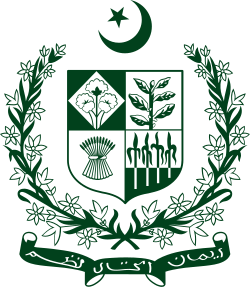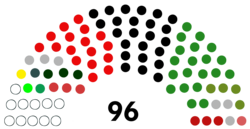| Minister for Law and Justice of Pakistan | |
|---|---|
 | |
since 11 March 2024 | |
| Ministry of Law and Justice | |
| Member of | Cabinet of Pakistan |
| Reports to | Prime Minister |
| Seat | Islamabad |
| Appointer | President of Pakistan on advice of Prime Minister |
| Formation | 1947 |
| First holder | Jogendra Nath Mandal |
| Website | Ministry of Law and Justice |
 |
|---|
The Law Minister of Pakistan heads the Ministry of Law and Justice. They serve in the cabinet of the Prime Minister.

